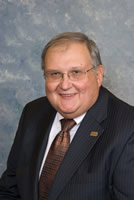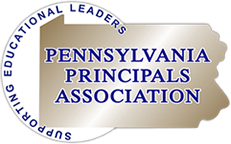Keystone Exams: What Happened and Why
 While we do not as a practice include editorial pieces in the magazine, it seemed appropriate to use this format to explain the Pennsylvania Association of Elementary and Secondary School Principal’s (PA Principals Association) role in the Keystone Exams (formerly Graduation Competency Assessments or GCAs) process, which are now a reality. As the association’s point person for this issue, I thought it appropriate to share my perspective.
While we do not as a practice include editorial pieces in the magazine, it seemed appropriate to use this format to explain the Pennsylvania Association of Elementary and Secondary School Principal’s (PA Principals Association) role in the Keystone Exams (formerly Graduation Competency Assessments or GCAs) process, which are now a reality. As the association’s point person for this issue, I thought it appropriate to share my perspective.
The Pennsylvania Association of Elementary and Secondary School Principals’ Board of Directors never endorsed or supported the passage of the Keystone Exams. While PA Principals Association does find merit in some aspects of the final regulations, our position has remained that changing the exams would not get students to the level where we all want them to be. This was a view that was shared by more than 20 other education groups, including superintendents, teachers’ unions, exceptional children advocates and the school boards’ association. Early in the process, we all came together to form the Coalition for Effective and Responsible Testing (CERT) for the purpose of disseminating factual information on this issue to the appropriate persons and organizations.
With this much opposition, why then do we have the Keystone Exams? The answer to this question is because others wanted them. So, the scene was set — two coalitions — both with their own set of statistics and data; both convinced they were right in their thinking.
The Administration, meaning the Pennsylvania Department of Education (PDE), some legislators and the Governor’s office, determined early on the best way to get this issue accomplished was to have a task force, have them make recommendations to strengthen testing requirements, and then pass it through the rulemaking process. What the opposition did not calculate was how well the education groups would come together to fight the exams. What the education groups did not calculate was how this was more than just an ideological discussion on how best to educate children. I mean, who would be against the concept of revising high school measurement requirements so that a public high school diploma signifies students have a certain level of knowledge and skills that prepares them for the workplace or college?
In order to make changes, the Administration had to first attack the current PSSA system, in place since 1999, as not being rigorous enough. That was done by scheduling a number of hearings across the Commonwealth under the State Board of Education to gather information. Your association testified at a number of these hearings using staff, board members and other principal volunteers. Many of the other organizations did the same. But so did the opposing side. Business persons, community representatives, a coalition made up of some school superintendents and various other groups came forward to present the viewpoint that GCAs would be beneficial to education. For example, one of the owners of the Pittsburgh Steelers testified on how important GCAs would be to increasing the academic proficiency of high school graduates. In my 30 years of working in the education field, I do not remember any other time when such high-profile members of the business community came forward to testify on an education-related issue.
Unfortunately, CERT could not convince large groups to rally to the cause. More than 1,000 letters, one of the largest responses ever, were written and sent to the Independent Regulatory Review Commission (with the majority against implementation of the Keystone Exams). However, when you consider there are 4,500 school board members, 3,000 plus school superintendents and other central office personnel, 6,000 plus school principals and 100,000 teachers, we did not succeed in getting people involved in presenting their opinion publicly.
Another major factor in this process was the use of data. Early in 2008, a child advocate group consistently used the data that 461 school districts had at least 20% of their graduates not pass the PSSAs. They pointed out that in 2006 more than 57,000 of 127,000 high school seniors or 45% did not score proficient on the 11th grade reading and math PSSAs or the 12th grade retake. PDE then contracted with a major university to determine the validity of the alternative assessments. Unfortunately, what was returned by school districts did not necessarily document in its entirety what was being used. However, what was submitted was used by the university in its determination of the validity of the local assessment. As to be expected, the study came back as being negative to our viewpoint. As quoted from their report to PDE, “Based on criteria established by the panels, evidence of alignment to standards and practices that could result in valid measures of present proficiency was present from five percent of school districts statewide…” When the Pennsylvania School Boards Association (PSBA) removed itself from the coalition and then later the Pennsylvania State Education Association (PSEA) dropped its opposition to Keystone Exams, the final outcome was determined. While CERT labored on, it was obvious that the loss of support from these two organizations had an impact on the outcome.
Many positives for principals did come out of this two plus-year process. More than ever before, we communicate with legislators, state board and PDE on important educational issues. As an association, we recognize that we need to get you, the member, more involved in speaking to your legislator at the local level. The educational groups showed they can work as a group. While the CERT coalition experienced some bumpy times near the end, we did work well together for a good portion of the time. We were able to make significant changes to the Graduation Exam proposal from what was initially proposed. Not requiring students to retake the entire exam, but just the module they failed, allowing for a bridge system to allow alternative assessment for students, to have the end-of-course exam hopefully replace the 11th grade PSSA exam and requiring PA Principals Association to have input into the assessments used by the Commonwealth are all positive outcomes achieved in this process.
For more information, contact Mr. Acri at (717) 732-4999 or acri@paprincipals.org.
